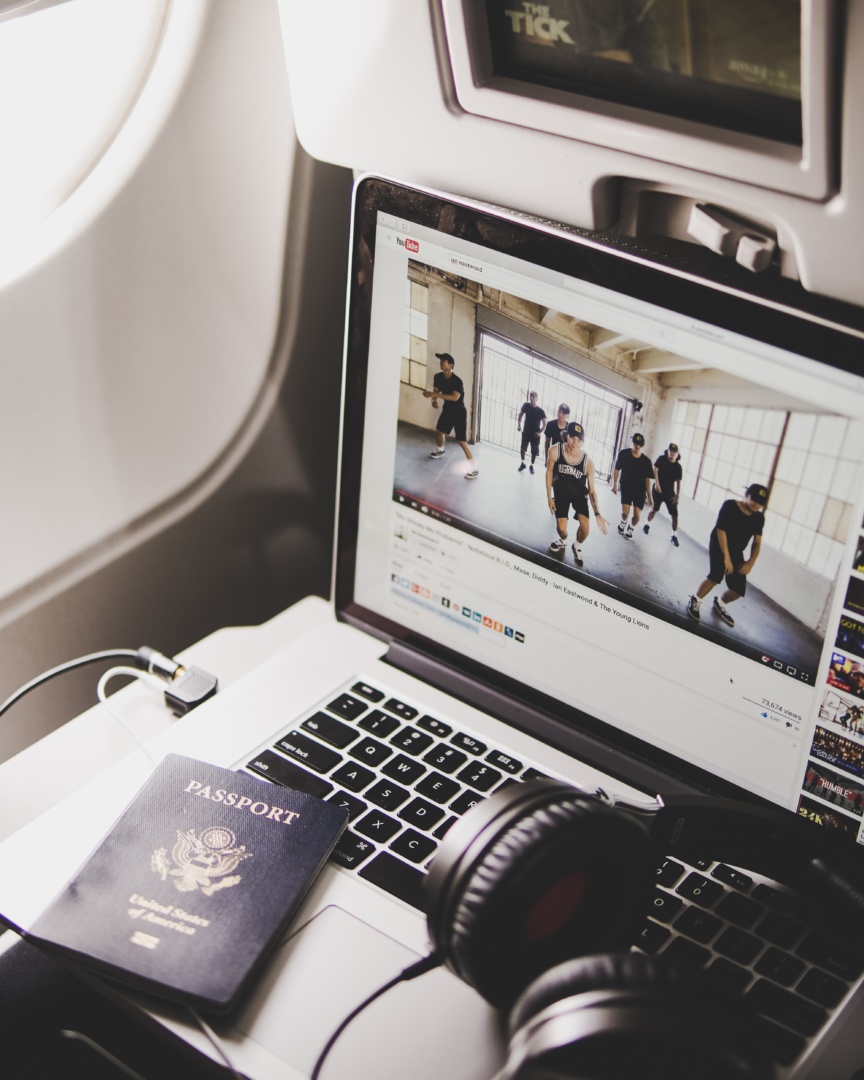
The recent controversy surrounding YouTuber Logan Paul highlights the need for brands to check on their influencers.
“The Instagramming and unboxing mass of inspirational lifestyle gurus known as influencers are only becoming increasingly central to the marketing strategies of fashion and luxury brands in 2018.” Influencers are taking to new heights this year!

“The way we ask for recommendations has evolved. Whereas once upon a time we may have asked a neighbor to recommend a product or service, 47& of millennials now turn to social media for recommendations and reviews before deciding on a purchase. But these consumers aren’t always going to the social media accounts of brands. Much of the time, they're visiting the profiles of a special breed of social media personalities: influencers.”

‘Influencers promote products they really care about and the brand gets authentic positive review.' Great interview with Omri Bitan!
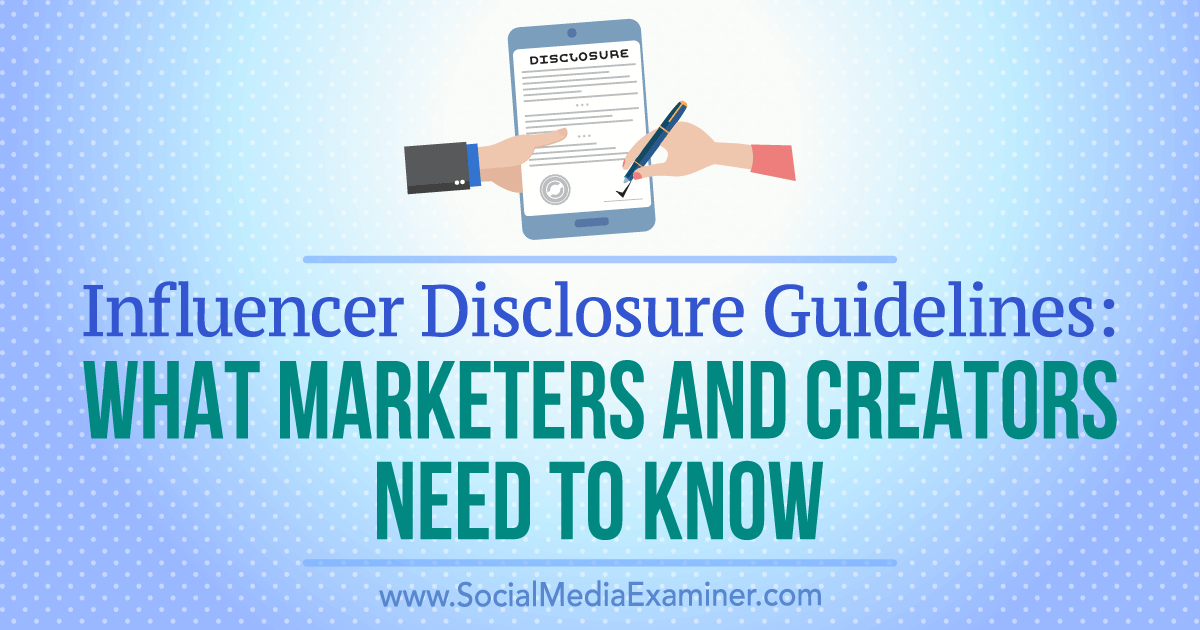
“Do you work with influencers? Wondering how best to comply with disclosure guidelines? In this article, you’ll discover how to properly protect your business when participating in influencer campaigns. #1: Use Built-In Disclosure Tools for Top Social Platforms One positive result from the efforts of the Federal Trade Commission (FTC) to increase transparency is that […]”
“In Digiday’s Confessions series, we trade anonymity for honesty from individuals in media and marketing. Our best Confessions from 2017 touched on topics spanning from The New York Times’ editorial layoffs to influencer fraud and agency culture.”
More micro-influencers, bigger budgets and attention to tracking will be the trends moving forward.
Great influencer review! “Influencer marketing is worth at least $1 billion, and it has grown up a lot this year, with more sophisticated data and tighter media contracts. Here are five things we learned about influencer marketing in 2017.”
Top 5 Influencer Research Tools for Social Media Marketing
uma.bhat
Tue, 11/14/2017 – 09:47
Do you know that 61% of consumers skip ads and 48% install ad blockers!
Customers are more likely to buy when they get recommendations from a person they trust.
It is true that 49% of consumers seek guidance from social media influencers before making a buying decision.
Many marketers have realized that ads is not the best way to market their products. The rise of ad blocks is giving way for influencer marketing.
We all have seen celebrities like Justin Bieber promoting Calvin Klein underwear or Selena Gomez promoting Adidas Neo.
They are not the expert fashion designers or have any involvement in the products, yet their promotions have a mass appeal. This is celebrity marketing has been there ever since the evolution of marketing.
Influencer marketing is a latest trend that has emerged due to the growth on online marketing.
Influencer marketing is a way of promoting products with the help of influencers in the domain who are experts in the products that they promote.
For example, beauty bloggers like @MichellePhan promote beauty products and fashion bloggers like @AIMEESONG ?promotes a new fashion line. In this case, the promotions are trusted much higher by the consumers since they see promotions from the experts.
Influencer marketing can work wonders for your brand. Many marketers are replacing celebrities with YouTube, Instagram, and Snapchat influencers. These online stars are providing unfiltered feedback on products, and consumers love it.
Influencer inspire engagement with their audience by making it a two way communication. Influencer have built a fan following through social media and their reach usually focuses on a specific niche audience.
For example, an influential gamer would endorse gaming and tech products. People look up to these influencers for advice, tips, and recommendations in regards to consumer products.
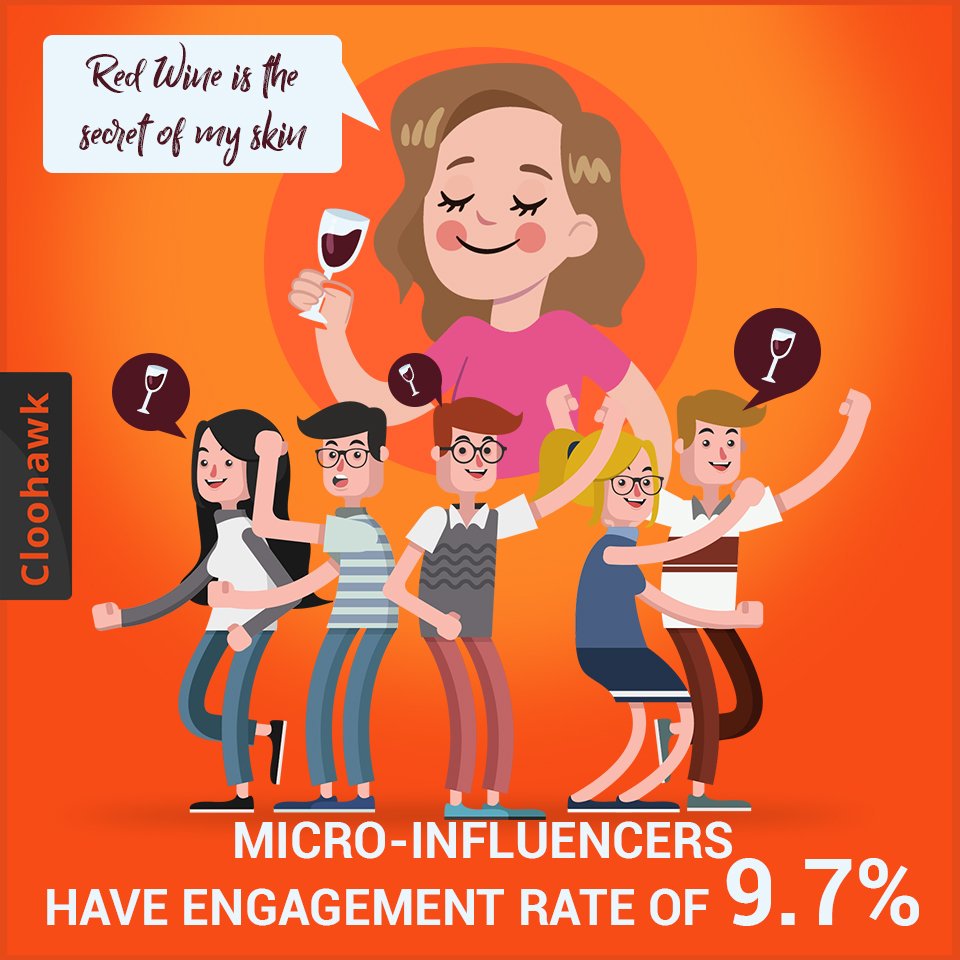
Now that you know the importance of influencers, it is time to find and research influencers in your domain so that you can engage with them for your product promotion activities.
But finding influencers can be a task by itself. This is the first step towards your influencer campaign and needs to be perfect. There are quite a few impressive tools that will help you in researching influencers in your niche.
Buzzsumo is one for the most popular tool to research influencers. Search Buzzsumo with a keyword relevant to your industry and it will throw up results of the top influencers in your niche.
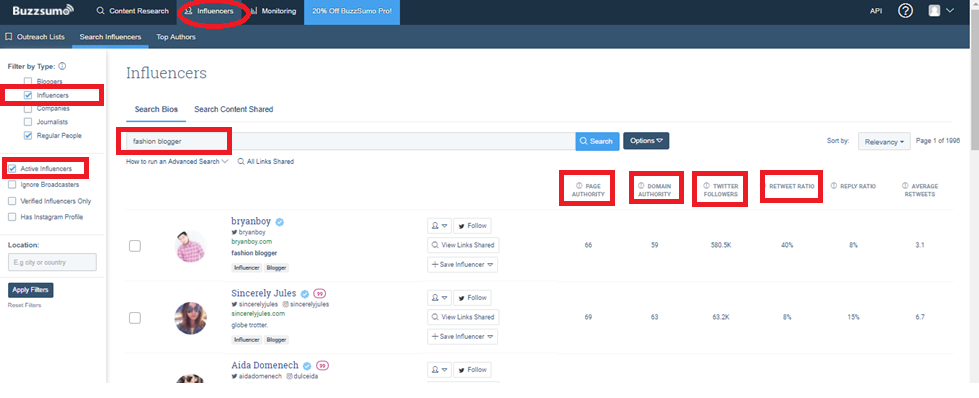
Buzzsumo shows the page authority and domain authority. It also provides useful insights into the number of twitter followers, their retweet ratio, reply ratio and average retweets.
These statistics help the marketer to know the reach and engagement of the influencers, based on which they can choose the right influencer for their promotion activities.
Hootsuite is a powerful tool that helps marketers to discover social media influencers by monitoring the conversations that relate to your industry. This tool helps you to get answers to some of your questions such as:
When you get the answer to these questions, you have got the set of people who can help to expand the reach for your brand.
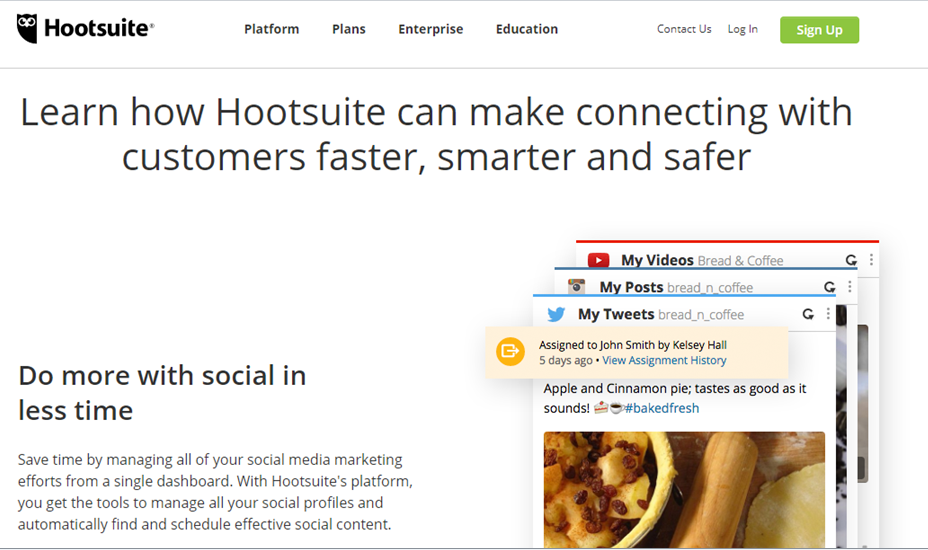
Traackr is a tool that offers solution for those markets who are interested in reaching out to influencers with an aim to build strong relationships. It is an efficient tool to manage your global influencer network.
Traackr helps to track conversations and also validates real influencers. It saves a lot of time of the marketers by identifying the right influencers as per the profiles that a marketer is looking for.
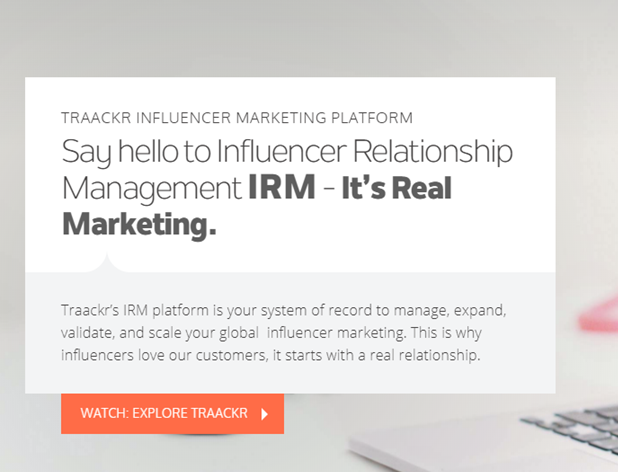
Traackr scores each influencer based on reach and relevance, which provides a clear starting point for the marketers. It offers features such as tracking conversations, import existing contacts and a lot filtering options.
BuzzStream is another useful influencer outreach tool to help manage your efforts of finding and managing influencers. BuzzStream is capable of automatically researching influencers. This tool can be used to discover the contact details and social profiles of influencers in your niche. It also helps to you track communications with influencers.
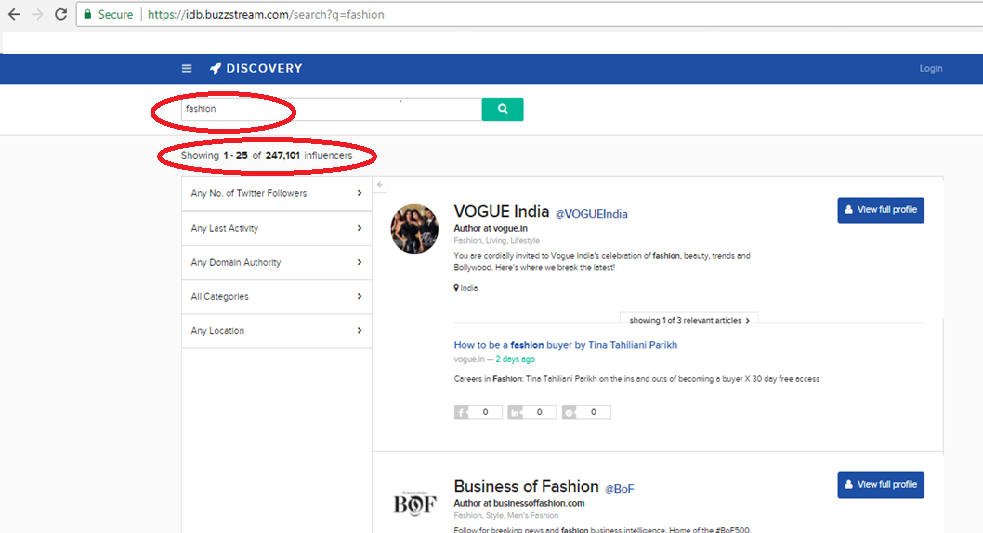
Once you have the list of URLs, BuzzStream will take over and complete the rest of your work. It will automatically search each website and identify contact information, social metrics and traffic statistics.
Pitchbox is yet another useful tool that helps you to find influencers in your niche. With Pitchbox you can focus on creating connections and discussing partnerships with the top influencers in your space. It is a wonderful tool to find contact information, website URL, social media profiles and much more.
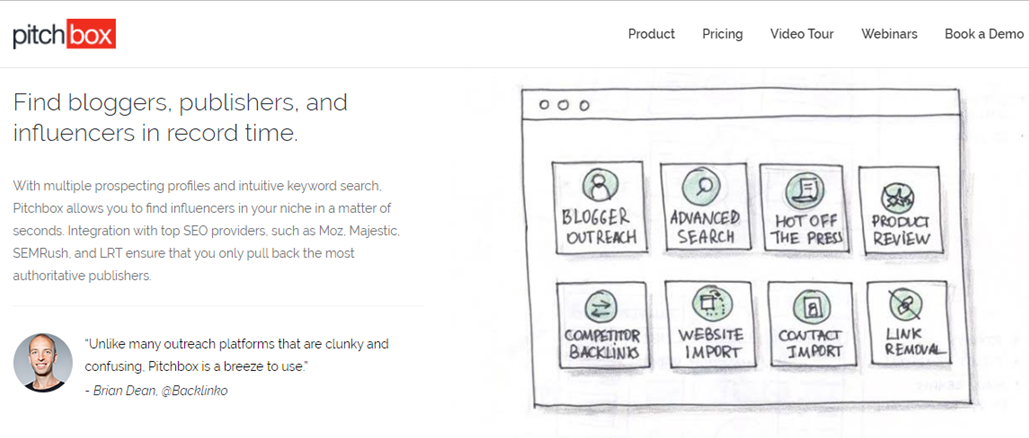
Pitchbox allows a marketer to set up emails which will reach out to opportunity contacts up to three times. When you receive a response from the contact, you can view and respond to it within Pitchbox’s interface, removing the need to use multiple programs or browser windows.
81% of people trust the advice they receive from influencers.
It’s time to leverage the power of influencers in your space. Influencer marketing drives sales to a great extent. With the right tools you can find influencers who really matter to your business.
Have you tried any of the tools to find more influencers? Would you add any other tools to this list? Please share your list in the comments section below.
On – 18 Oct, 2017 By Jeff Rojas
A quick Google Trends Search and you'll quickly see that the search for “Influencer Marketing” has skyrocketed over the last five years. Rightfully so, as Entrepreneur contributor Daniel Newman pointed out in 2015, and several studies have proved: Influencer marketing is the fastest growing and most cost-effective channel.
But for every success story, there's a dozen other nightmare stories of influencers who've mishandled their responsibilities and botched their marketing strategies along the way. Case in point, a celebrity influencer who neglectfully forgot to remove the copy from their post. If you’ve ever hired an influencer and didn’t see a return on your investment, don’t worry you’re not alone. In an ideal world, you’d hire a Michael Jordan or David Beckham for your company, and products would start flying off of the shelves.
The reality is that influencer marketing is significantly more complex than that. Even though you’re paying for access to a specific audience, that audience is still a consumer market that you need to use a strategic approach with — and adopt an entrepreneurial mindset.
While it should go without saying, you want to invest in someone who actually uses your product or service, or someone who could potentially benefit from using your product or service.
It’s not worth your time hiring someone who doesn’t have a vested interest in using your product. For instance, if you were a wetsuit company targeting surfers — you wouldn't try to engage with a surfer who is known for not wearing a wetsuit.
It is probably not the most efficient use of your time to employ a non-wetsuit wearer, unless you can come up with a compelling reason why your specific person is jumping out of their skin to start wearing your new wetsuit for a distinct and definite reason.
You want someone who wants to use your product and who is willing to provide you “real world feedback.” Think of it like a small focus group for research and development (e.g., this is what I LOVE about your product, but I think you can improve on it). This way, you know exactly what they’d tell their audience behind closed doors when you’re not around.
Just because a person has a large audience doesn’t mean they’re successfully reaching them. And just because an influencer has a large following doesn’t mean they have the attention of their audience. Worst yet, what if your influencer was one of those who bought their followers?
A large following doesn’t mean anything if that audience isn’t listening to you. Think about it this way: If you had a physical brick and mortar store, what’s more valuable for immediate sales?
While the first scenario may help reach a broader audience and start promoting brand awareness, it's not as likely to convert to sales if you're trying to cover overhead. Most, companies would rather take the qualified list of leads — and rightfully so.
In order to make the most of influencer marketing, you need to hold influencers up to the same level of accountability as any of your other marketing outlets. It doesn't benefit your business to invest in a lead list with no qualified leads.
The problem with traditional influencer marketing is that most companies don’t set themselves up for success to begin with. Simply put, they’re paying for something or someone they don’t even understand how to efficiently use.
The secret to making influencer marketing efficient is to first define what your goal is and exactly how and why that influencer can help you get there.
If your focus is brand awareness and you’re trying to build your Instagram following — great! Define a reasonable number of views and followers that you’re expecting per post. Define how many followers that you’d like to see by the end of the month. Define what tags to use to promote your content. Be explicit with details.
If you’re trying to sell products, then define how many sales you’d like to see per month or per quarter. There are quite a few fitness companies on Instagram who offer commission sales to their influencers as opposed to paying them per post. In order to keep anyone accountable, you need to define what your goal is so that you can track of their progress with specifics.
In addition to that, most influencer marketing is done with a “shake of the hand” deal, or a “nod of the head.” That type of mentality doesn’t lend itself well to accountability or success.
If you want to make the most of any influencer marketing, you need to focus on defining a specific outcome and then holding your influencers accountable just as you would your other employees. By defining target goals and defining expectations, you can set yourself up for success from the beginning.
For instance, a couple of my clients have hired me on a monthly retainer rather than hiring me on a project by project basis. Each contract has different stipulations, but my obligations range from speaking engagements to demonstrating products and mentioning new products on social media. The benefit for companies to work with me on a consistent basis is that I’m able to incorporate them seamlessly into the work I’m doing already.
For example, say that you’re a men’s sportswear brand and you’re looking to pay an influencer to wear your attire while they’re working out. Rather than doing a one off video or project, sponsor them and require that they wear your attire anytime they’re on camera.
Keeping that example, say your influencer gets picked up by a vitamin brand — now your influencer is wearing your attire while marketing the vitamin brand’s product.
By incorporating several brands that seamlessly integrate with one another into my daily outreach, the companies can then benefit from the marketing dollars my other clients spend. Think of it like a mutual fund and my brand is the bank.
Individually, each company may have a limited budget for outreach, but by pooling their resources into one brand (me), they’re able to reach a consumer market they may have not had access to. With those contracts, my clients and I sit down and write up a contract that defines specific dates, projects and expectations that they have — then I follow up monthly with a report and phone call.
Contractually, what you’ll want to do is make sure that your influencer doesn't include your competitors. This seems obvious to entrepreneurs, but not so much with influencers.
Just like any other employee, you have to keep your influencers accountable or you’re not going to see a return on your investment. I also find that the brands that have the most communication with me are usually the ones seeing the most benefit out of working with my brand.
Even if I’m putting my best foot forward, usually clients who are uninvolved don’t see the value I bring to table until it’s too late. Coordinating our efforts allows me to create the content that promotes their products in the most seamless way possible.
Source: